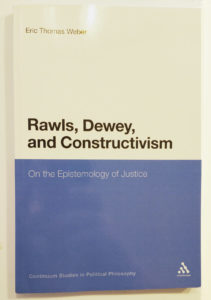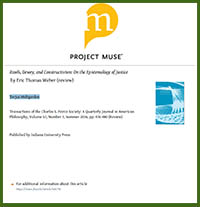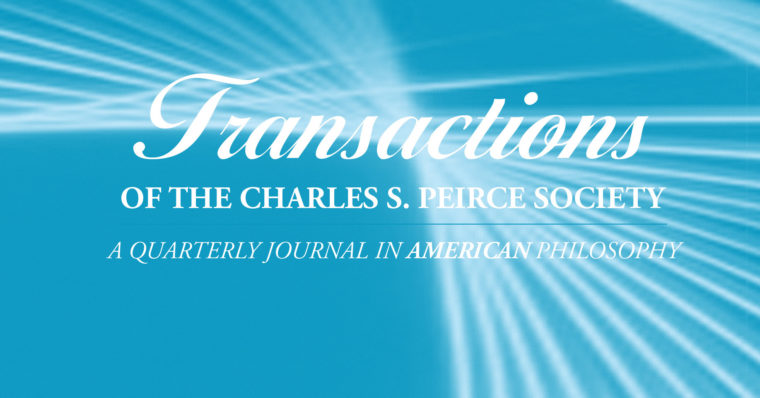Warning: This post is about a scholarly review of a pretty technical book.
 The pace of academic work can sometimes seem tectonic. There’s a reason scholars tend to have a hard time appreciating what news editors mean by “timely.” For a philosopher, an argument about Plato that was published after the year 2000 is downright recent.
The pace of academic work can sometimes seem tectonic. There’s a reason scholars tend to have a hard time appreciating what news editors mean by “timely.” For a philosopher, an argument about Plato that was published after the year 2000 is downright recent.
Keeping that in mind, I’m pleased to share with you the book review that has just been published of my first book, released in 2010, Rawls, Dewey, and Constructivism. It’s the first review of that book to come out in any of the major American philosophy journals, believe it or not. The book wasn’t ignored, I’m happy to say, having been reviewed very positively in 2011 in Notre Dame Philosophical Reviews. But, the Transactions of the Charles S. Peirce Society is a top notch outlet for one of my deep philosophical interests, namely American philosophy.
The best news about the review that has just come out is not any glowing language about my book. The tone of the review is very matter of fact and balanced. The fantastic thing is the quality of this review.
A good review has to tell you in some precise detail about the aims, structure, and substance of the book to be reviewed. It also should raise notes about both what were some strengths in the project and what could either be improved or extended in future work. In his review, Torjus Midtgarden of the University of Bergen has seriously inspired me in a highly unusual way. He’s made me want to return to the study of the subject of my dissertation.
 Most people finish their dissertations and don’t want to look back. Not only did I look back in the years after defending it, but I did the traditional thing some choose to do and developed elements of it further, ultimately putting the revised project out as a book. When you’ve gone through that step, you’re even less motivated to want to return to it. You’d think so, anyway.
Most people finish their dissertations and don’t want to look back. Not only did I look back in the years after defending it, but I did the traditional thing some choose to do and developed elements of it further, ultimately putting the revised project out as a book. When you’ve gone through that step, you’re even less motivated to want to return to it. You’d think so, anyway.
Dr. Midtgarden was even handed, though generous in offering a thorough and precise understanding of the aims of my project. He also invited some thought and response about his comments on it that were pointed, but fair and intellectually provocative.
 How cool is that? I am grateful to Professor Midtgarden and plan to stew on his interesting comments and suggestions for some time. Here’s his review.
How cool is that? I am grateful to Professor Midtgarden and plan to stew on his interesting comments and suggestions for some time. Here’s his review.










 Despite the torrential rain this morning, I made it on time to meet with Katrina Berry of WLOV Tupelo’s This Morning show.
Despite the torrential rain this morning, I made it on time to meet with Katrina Berry of WLOV Tupelo’s This Morning show.

